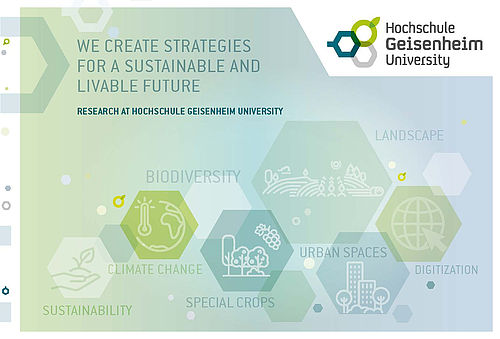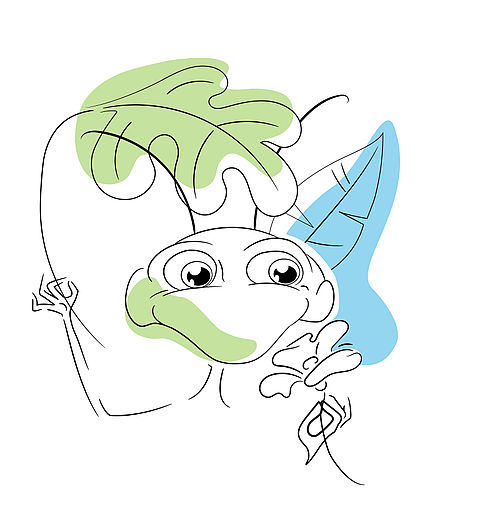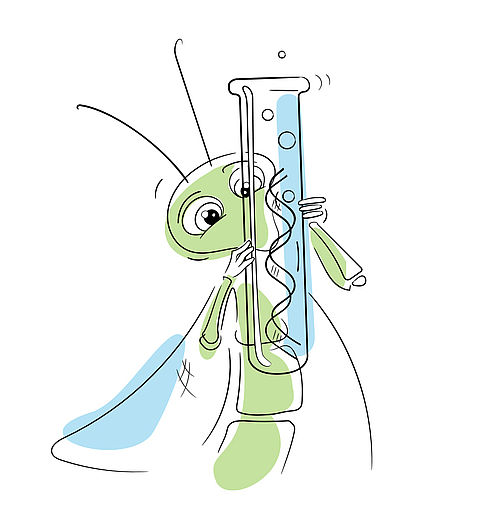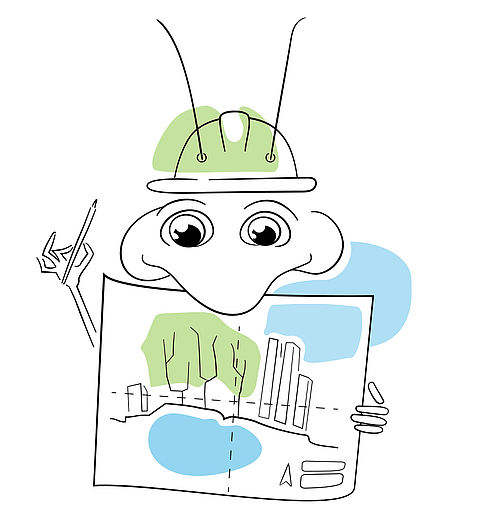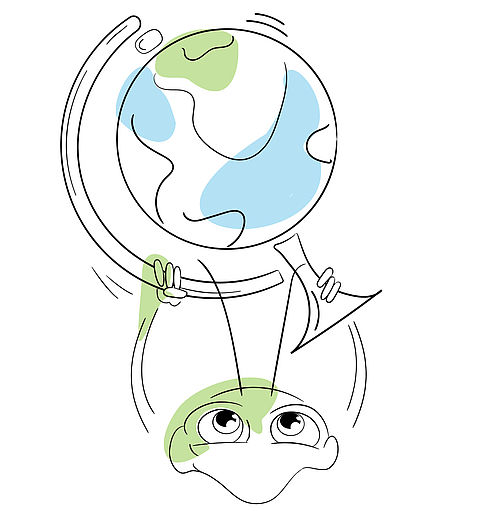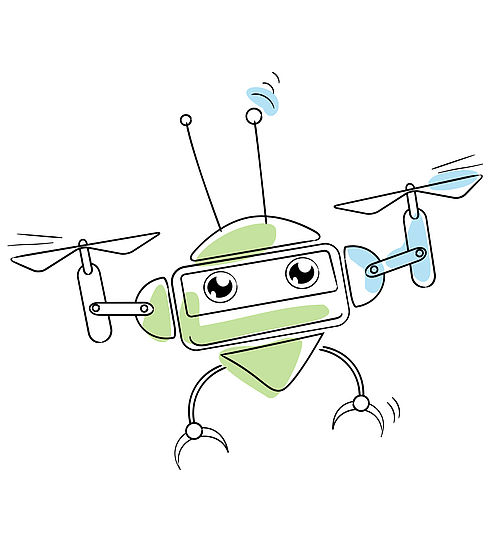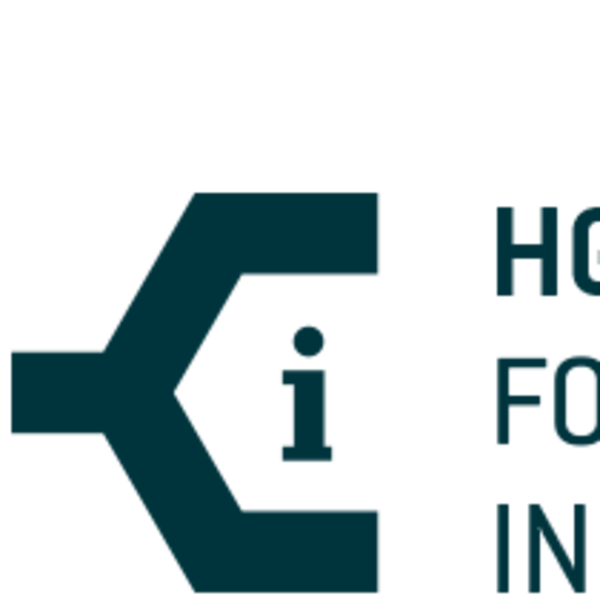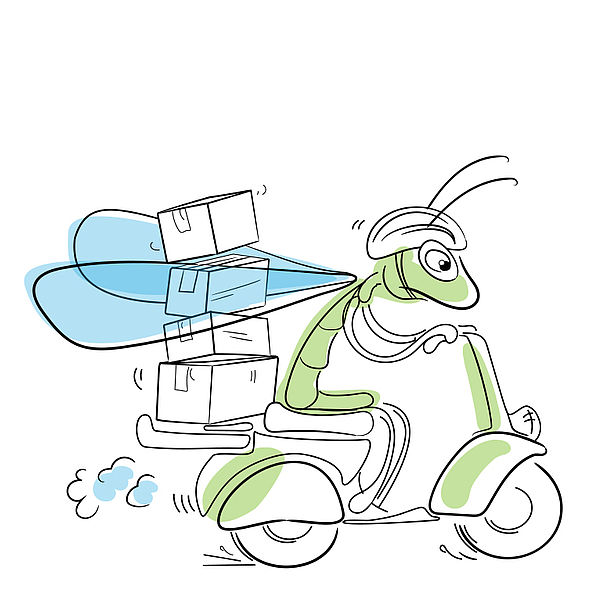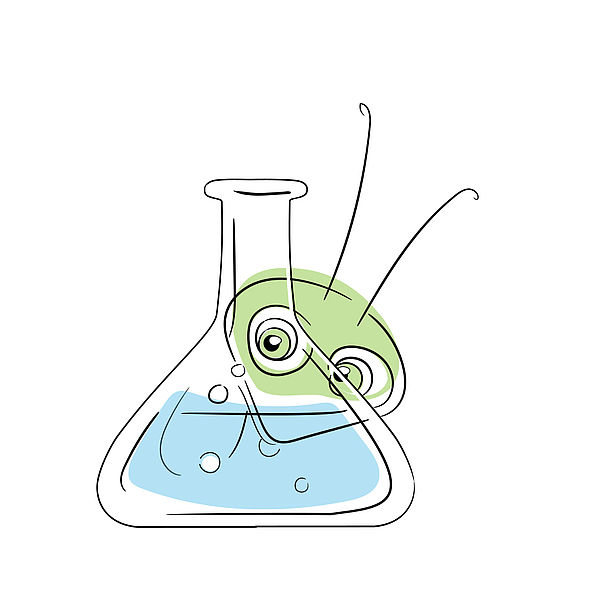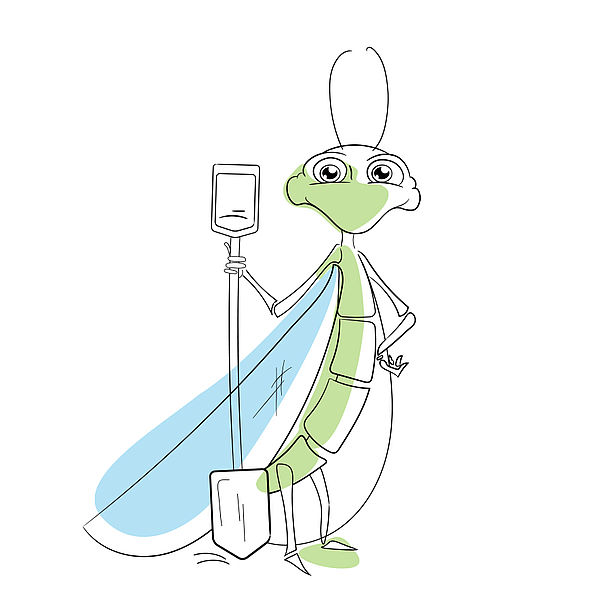We create strategies for a sustainable and livable future
Climate change, loss of biodiversity, sustainability goals – we are facing a wide range of global challenges!
These challenges are raising numerous questions for our university with its clear focus on special crops and their products as well as its commitment to a sustainable development of cultivated landscapes and urban open spaces. How can we develop future forms of land management, especially with regard to crops such as grapes, fruits and vegetables that require intensive crop management? How to shape urban spaces and cultivated landscapes to make them fit for the challenges of climate change while also having the potential to combat it? How can we continue to supply healthy, safe and sustainably produced food for a growing population? These are a few examples of questions our scientists are tackling in research and teaching on a global and regional scale – and coming up with solutions will sure be a huge challenge! To that end, our research must be theory-based while focusing on practical applications as well. Thanks to various collaborations, we have created a strong network with renowned universities and research institutions as well as industry partners and associations in Germany and abroad. In the future, we have to increasingly tab the enormous potential that our network provides because today’s most pressing issues have reached a global dimension and can hardly be tackled by single institutions alone – irrespective of their size. Therefore, we stand together as a cross-border network to master the numerous challenges of our industries with clever minds, smart solutions, commitment and persistency.
Our website provides an introduction to our fields of activity and to our research and teaching infrastructure. As a university with a special profile and a strong focus on covering the entire value chain of special crops, we are committed to developing strategies for a sustainable future that is worth living for everyone. Learn more about our research and teaching approaches on the following pages
Our Research Focus
Developing Productive, Quality-Oriented and Sustainable Cultivation Systems for Special Crops
Cultivating grapevines, fruit, vegetables and ornamentals requires intensive crop management and a high use of resources. Consequently, viticulture and horticulture have to strike a balance between producing sufficient quantities of high-quality products in line with market requirements while acting with an eye to the future, respecting nature and environmental aspects and using resources sustainably. Thus, our research activities focus on the development of innovative and ecological cultivation strategies for special crops. For instance, we are working on cultivating new crop varieties or growth forms that are more adapted to climate change and site characteristics while being more pest-resistant and efficient in their use of resources, which will lead to reliable yields for producers. Another example includes the test run of intelligent sensor systems to precisely manage and optimize the use of scarce resources like water and nutrients. In addition, we are exploring alternative strategies such as the use of microbial antagonists to control pests, or adding substances to improve site conditions. In cooperation with our partners, we are developing strategies to diversify cultivation systems for special crops in order to safeguard ecosystem services and biodiversity.
Processing and Marketing Agricultural Plant-Based Products Innovatively and Safely – Respecting Bioeconomy
A sustainable food production ranges from crop production to processing up to the delivery of products to customers. At the same time, these products have to be safe and free from harmful substances. In addition, a sustainable management system must use biological resources, processes and systems more efficiently than before. Thus, bioeconomy in food production is crucial to meet sustainability goals, which is why it has become an important part of our research. For example, we are working on the development of energy and resource-efficient processing methods for plant products, and we are investigating how to extract and formulate functional ingredients from harvest products and their by-products. Micro-organisms are also examined to establish whether they can serve as protective cultures in food production. As part of our joint research projects with external partners, we are assessing the health effects of plant-based ingredients. The resulting products are carefully evaluated in sensory aspects by our university panel. Market research data, business analyses, and analyses of consumer behavior help to identify trends, especially in wine marketing, and to draw conclusions for future marketing strategies. Our research activities also include analyzing logistic challenges in the food production chain – from producers to customers and from packaging to distribution.
Sustainable Design and Development of Cultivated Landscapes and Urban Open Spaces
Cultivated landscapes and urban spaces have experienced profound changes in the past. Increased land use, for instance, has led to a loss of decisive characteristics and a decline in biodiversity. Social changes and requirements also have a huge influence on open space planning in urban regions, where quality of life is mainly determined by the availability of green infrastructure such as green belts and parks. In view of these parameters, our research activities focus on the development of methods to evaluate urban open space design and to assess the social sustainability and performance of urban spaces. For example, we are refining processes in the greening of urban spaces, and exploring conditions for the use of plants in cities, especially in the context of climate change. Another research focus includes identifying strategies to adapt landscapes shaped by viticulture in particular to the challenges of climate change, to safeguard biodiversity and to protect individual species in the cultivated landscape. Drawing on the development of sustainable cultivation systems, our research lays the foundation for new production scenarios that foster sustainable and multifunctional cultivated landscapes with a high ecological value and tourist potential.
Assessing the Risk of Climate Change – Developing Strategies for Adaptation and Mitigation
Climate Change and its effects on temperature and precipitation distribution as well as atmospheric CO2 concentration already have a significant impact on cultivation reliability and conditions for special crops, on material cycles in soils and ecosystems, and on the planning and management of urban green areas and open spaces. Therefore, it is necessary to develop adaptation strategies for viticulture and horticulture, which are in the center of our research activities. We are working on strategies to meet future water demands and to control (new) pests. As part of our research, we are also examining the effects of changed climatic conditions on yield, quality, content and flavor of grapes and horticultural products. In addition, we are developing strategies to reduce greenhouse gas emissions (mitigation) in agriculture and to evaluate these reductions with regard to their CO2 compensation as part of a sustainability assessment. Another key area of our research activities concentrates on the effects of climate change on steep slope viticulture, also in view of promoting cultivated landscapes, enhancing biodiversity and, as a result, improving ecosystem services.
Digitization in the Production and Marketing of Special Crops and Landscape Planning
Digital applications have become an important factor along the value chain of special crops. Intelligent technologies and automated processes, for instance, are already used throughout the entire cultivation process, for example for fertilization and crop protection, but also for processing, transport and marketing. Sustainable cultivation, processing and marketing strategies will increasingly rely on digital technologies. In view of these developments, we are working on (non-contact) sensor technology and easy-to-use forecast models to optimize the use of resources, and to identify stress and diseases at an early stage. Digital technologies are also part of process-related applications, for example when using drones to apply plant protection products, or to assess nutrient requirements of specific crops. By digitally simulating plant growth and modelling virtual vineyards, we aim to forecast the effects of climate change on plant architecture and stress events. In beverage production, modeling complex production steps help us analyze and optimize these processes. An optimized data collection process also enables us to streamline supply chains from producers to customers.
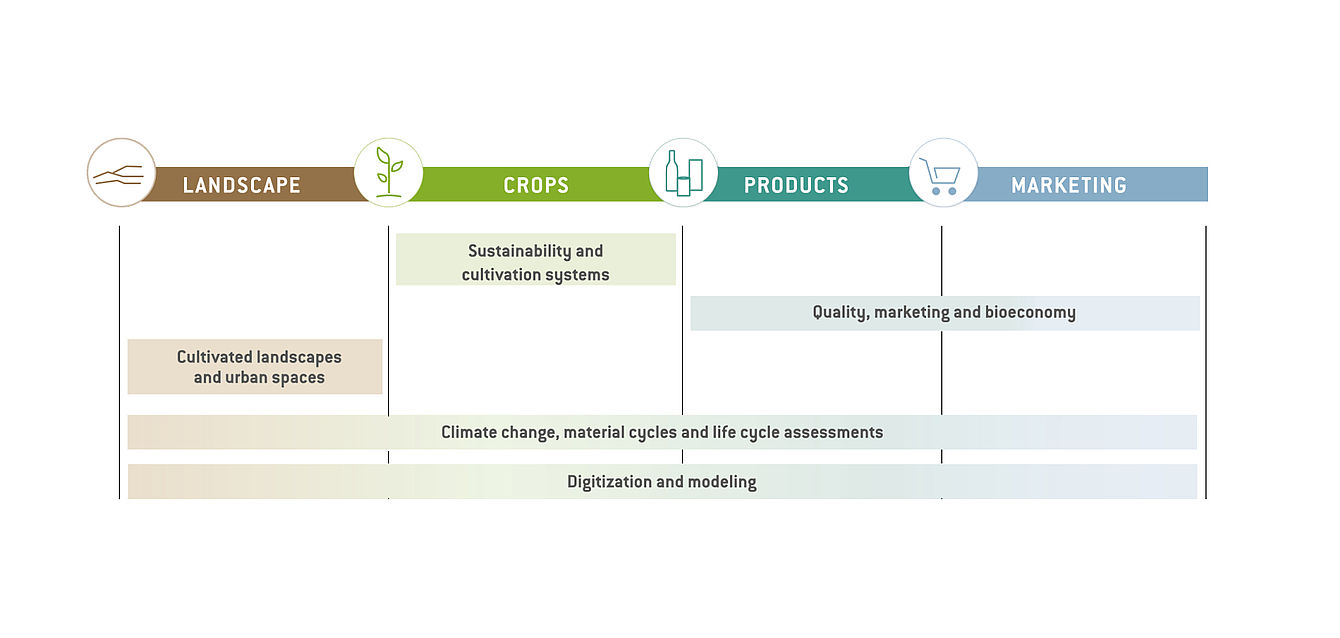
Our University has unique opportunities to conduct scientifically recognized and applied research along the entire value chain of special crops. In doing so, we benefit both from a strong network of national and international partners and our own excellent research infrastructure at Geisenheim.


